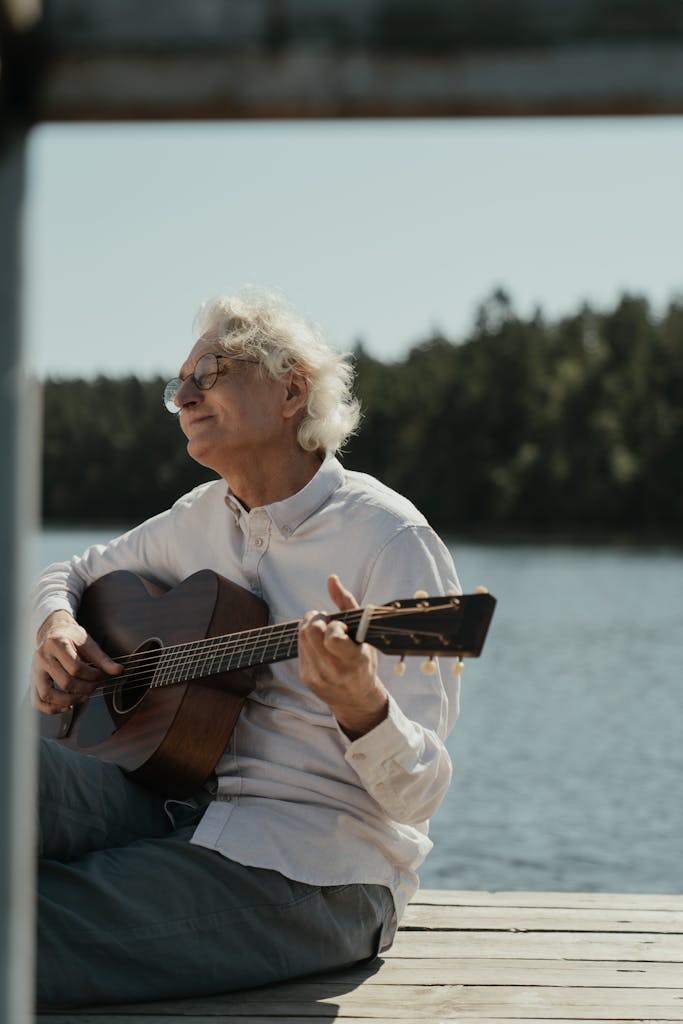Grief and Loss Support for Musicians and Music Industry Professionals
Grief shows up in different ways. It can be quiet or loud, slow or sudden. For musicians, the pressure to perform, stay creative, or hold it together in public can make grieving feel even harder. Whether you’re facing the loss of a loved one, a bandmate, a relationship, or even a part of your identity, your feelings are real. You don’t have to push them down to keep going.
This page offers grief and loss support for musicians. Each section covers different parts of the grieving process, from the early days of shock to finding meaning over time. You’ll find simple, science backed ways to cope, reflect, and take care of yourself in ways that fit your life. However your grief looks, you’re not alone, and there are tools here to help you through it.
Understanding Grief
Grief is what happens when you lose someone or something that mattered to you. That loss might be a close friend, family member, bandmate, mentor, or even a version of your life you thought you’d have. Grief doesn’t follow one path. It can show up as sadness, anger, guilt, numbness, or even confusion. For musicians, it might also affect how you write, perform, or connect to your music.
There’s no right or wrong way to grieve. Everyone’s experience is different, but you’re not alone. These ideas can help you understand what you’re feeling and start to find some peace.
Grieving while staying creative
Grief can shake your world, and that includes your music. You might feel like writing songs is the only thing that helps. Or maybe picking up your instrument feels impossible right now. Both are normal. There’s no rule for how grief should affect your creativity.
For musicians, music is often tied to emotions. Creating through grief can be healing, but it can also feel too heavy. These strategies can help you stay connected to your creative self without pushing too hard.
Use music to express emotion
Try writing or playing just for yourself. Let the music hold your feelings, even if you never share it. It doesn’t have to sound perfect. You’re not performing, you’re processing.
Take creative breaks without guilt
It’s okay to pause. Stepping away from your music for a while doesn’t mean you’ve lost it. Rest is part of the process. Sometimes creativity returns when you stop chasing it.
Jam with people who feel safe
Being around other musicians can bring comfort. A no pressure jam session with trusted friends can help you feel connected without having to talk much.
Create a tribute through music
Some artists write songs, albums, or pieces to honor someone they’ve lost. If that feels right for you, it can be a powerful way to remember and process the grief through your art.
Life After a Loss
After someone experiences a loss life can feel strange or empty. You might wonder how you’re supposed to keep going when everything feels different. This part of grief is about learning how to live with the loss, not getting over it. For musicians this can mean figuring out how to get back into a routine, take care of your body, and find moments of calm in the middle of change.
It’s okay if things feel messy.
These strategies can help you move forward one step at a time:

Build a simple daily rhythm and routine
Grief can make time feel blurry or unstructured. Try creating a rhythm that works for your life, even if your schedule changes a lot. That might mean eating at regular times, setting aside moments for music or rest, or checking in with yourself once a day. A little structure can help your mind and body feel more grounded.
Start with small, achievable goals
Grief can make regular tasks feel overwhelming. Choose one simple thing to complete each day, like organizing cables, replying to one message, or making a meal. These small wins give you a sense of progress without adding pressure. When you focus on little steps, it becomes easier to move through the day at your own pace.
Keep sleep and rest a priority
Sleep can be tough when you’re grieving, especially with late gigs or touring. Even if you’re not sleeping well, you can still build in moments of rest. Take short breaks during the day, unplug from screens, or listen to something soothing. Your body needs downtime to help your brain and emotions recover and recharge.
Spend time with people who feel safe
You don’t have to face everything alone. Just being near someone you trust can help your nervous system relax. It’s okay if you don’t feel like talking. You can hang out in silence, play music together, or watch a movie. Safe company can give you space to breathe and remind you that you’re still connected.
Take care of your body to support your mind
Grief can weigh you down physically. Taking care of your body supports your emotional healing too. Try gentle movement like stretching, walking, or dancing to a mellow track. Even deep breathing or standing in the sun for a few minutes helps. Treat your body with the same care you’d give to a close friend.
Let yourself feel joy without guilt
Moments of joy might surprise you after loss. You may laugh, smile, or enjoy a song, then feel guilty right after. That’s normal, but you don’t have to shut joy out. Feeling good doesn’t mean you’ve moved on. It just means you’re human. You’re allowed to hold sadness and joy at the same time.
Finding Meaning After Grief
Grief can leave you asking big questions. What now? Why did this happen? What do I do with all this pain? Musicians often explore those questions through their art, but meaning can also come through relationships, memories, or personal growth. Finding meaning doesn’t mean the pain goes away. It means you’re learning how to carry it in a way that feels more manageable.

Grieving as a Touring or Gigging Music Industry Professional
Losing a Pet Can Hurt Just as Much
Pets are part of the family. They stay with us through long nights, early mornings, tours, breakups, and breakthroughs. When a pet dies or has to be put down, the grief can feel deep and strange. It might not look the same as other kinds of loss, but it matters just as much.
Some people feel a sharp, aching sadness. Others feel empty or numb. You might miss the routine, the comfort, the sound of their paws or the way they greeted you. That bond was real, and losing it is real too.
If you are hurting after losing a pet, it helps to name what you’re feeling and talk to someone who gets it. You might want to share a photo, write about a memory, or create something in their honor. There is no right way to grieve. What matters is finding a way to stay connected to what they meant to you while also taking care of yourself right now.
When Grief Feels Too Heavy
Some grief fades slowly. Some stays sharp. If your pain feels constant or more intense with time, you are not alone. Musicians often carry heavy emotions quietly while trying to keep going. This section offers support for times when grief feels like too much. There is help available, and healing does not have to be solo work.
Use grounding techniques during emotional waves
When emotions feel too big, grounding can bring you back to the present. Try naming five things you see, four you can touch, three you hear, two you smell, and one you taste. Focused breathing or holding a cool object can also help. These small steps calm your body when grief feels overwhelming.
Reach out to a mental health professional
If your grief feels stuck or too heavy to carry, speaking with a therapist can help. Therapists who understand musicians or creative people can offer space to unpack loss without judgment. You do not have to be in crisis to ask for support. A conversation can bring clarity and ease to what you are holding.
Practice mindful silence to help you find peace
Give yourself space to sit in silence for a few minutes each day. No music, no phone, no distractions. Just you, breathing. This quiet time helps your brain rest and lets emotions rise gently without pushing them away. You can sit, lie down, or just close your eyes backstage or on a tour bus.
Volunteer or help someone else
Helping others, even in small ways, can ease deep emotional pain. You might donate your time, offer to teach a younger musician, or just listen to a friend. Supporting someone else can bring back a sense of purpose and connection. It reminds you that your presence still matters in the world.

YOU MADE IT THIS FAR
Grief Moves Differently for Everyone in Music
There’s no right way to grieve, and there’s no deadline for healing. Some days might feel lighter, while others hit out of nowhere. If this page gave you even one new idea or helped you feel less alone, that matters. Keep going at your pace.
Working in music can bring intense highs, long hours, and emotional weight. Whether you’re performing, producing, managing, touring, or supporting from behind the scenes, grief doesn’t take your job into account. But you still deserve care, space, and support as you move through it.
Feel free to come back to this page whenever you need it. Grief changes over time, and so will the way you care for yourself.
